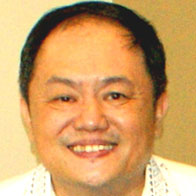"Democracy cannot succeed unless those who express their choice are prepared to choose wisely. The real safeguard of democracy, therefore, is education.", thus said the 32nd president of the United States, Franklin D. Roosevelt.
 For better or for worse, democracy is the system of government we have in Malaysia, a nation founded in 1963 with the coming together of four former British colonies and protectorate – Malaya, Singapore (left in 1965), Sarawak and Sabah.
For better or for worse, democracy is the system of government we have in Malaysia, a nation founded in 1963 with the coming together of four former British colonies and protectorate – Malaya, Singapore (left in 1965), Sarawak and Sabah.
In Malaysia, we have representative democracy with a monarch acting as Head of State. We elect one of our own to represent us in the ultimate law-making body, Parliament. In theory, it is a government of the people, by the people, and for the people, as described by Abraham Lincoln.
But for democracy to work, the sovereignty of the people must be respected and the government should rule base on the general consensus of the people who voted for them.
It is the rule of the majority but the rights of the minorities and basic human rights would be guaranteed. All citizens are equal before the law and the rule of law would be the order of the day.
For the will of the people to be expressed in electing their representatives, there must be free and fair elections, conducted by an Election Commission that is undeniably independent.
It is clear from the description above that Malaysia is far from being a mature and robust democracy.
With an incumbent coalition that has been the only government the country has known since its founding, the incentive to develop and mature the citizenry to participate in our democratic process is understandably feeble.
Geert Hofstede, a Dutch social psychologist, came up with the Power Distance Index which measures how people belonging to a specific culture view power relationships – superior-subordinate relationships between people including the degree that people not in power accept that power is spread unequally.
According to Hofstede, Malaysia scores very high on this index which means that people accept a hierarchical order in which everybody has a place and which needs no further justification. Hierarchy in an organisation is seen as reflecting inherent inequalities, centralisation is popular, subordinates expect to be told what to do and the ideal boss is a benevolent autocrat. Challenges to the leadership are not well-received.
Thus, despite the fact that the Federal Constitution tells us otherwise, Malaysians generally regard their elected representatives and rulers as "superior citizens" with special rights and privileges,to be revered and honoured without question. They take all the hand-kissing, deep bowing, threats, insults from "dignitaries" and other indignities as part and parcel of being a "subject".
Without voters education to reverse such thinking, the prospect of citizens holding elected officials to account for the way they manage the community and country is very slim.
These elected officials will continue to lord it over the electors. And to hold on to power, they abuse their power by channeling or withholding resources to gain votes.
Public institutions that are suppose to hold them accountable often work hand-in-hand to perpetuate their rule.
A basic voters education or empowerment programme should, at the very least, include the following four modules.
-
A basic understanding of the Federal Constitution and our rights, roles and responsibilities as citizens. This is our supreme Law, the rule book that defines our system of government and how different institutions relate to each other and to us.
-
The need to know the extent of and the impact of corruption on our daily lives and what we can do about it. Corruption is killing our nation but like the frog that is placed in cold water and slowly being boiled to death without jumping out, Malaysians seem apathetic to corruption.
-
How politics is totally relevant to us, as decisions made by politicians, be it in the Dewan Rakyat, state assemblies or town councils affects us every day. Draconian laws passed, opinions criminalised, toll hiked, GST imposed, religious words banned and the price of petrol, all has to do with politics.
- Voters need to know about elections, how to register ourselves, what are the issues to consider and what we can do to ensure a free and fair election. Beyond casting our votes, we have to guard them.
Knowing the importance of and the contents of voters education is one thing. The challenge is how to deliver it to the people who need them most, the rural and semi-urban voters.
The hurdles are real. Transportational, communicational accessibility and even language barriers are there but as the proverb goes, where there's a will, there's a way.
Beyond viewing voters education as a mean to winning elections, we have to view it as a long-term goal, a strategy to mature our democracy and indeed, to safeguard it. – November 9, 2015.
* This is the personal opinion of the writer or publication and does not necessarily represent the views of The Malaysian Insider.


Comments
Please refrain from nicknames or comments of a racist, sexist, personal, vulgar or derogatory nature, or you may risk being blocked from commenting in our website. We encourage commenters to use their real names as their username. As comments are moderated, they may not appear immediately or even on the same day you posted them. We also reserve the right to delete off-topic comments